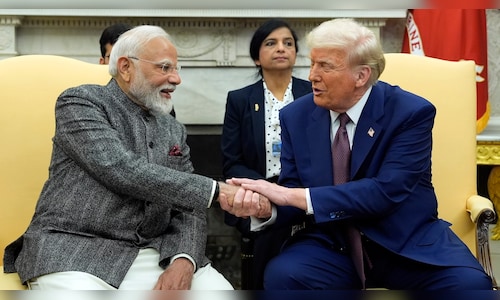Speaking in an interview with CNBC-TV18 following the Trump administration’s announcement of sweeping new tariffs, including a 27% levy on India, Saran suggested that while trade is a significant component, other crucial aspects of the partnership remain robust. He pointed to continued cooperation in defence, both in hardware and strategic alignment, as well as ongoing commitment to initiatives like the Quadrilateral Security Dialogue and the Indo-Pacific strategy, as evidence that these foundational elements have not yet been negatively impacted by the trade disputes.
While the US administration presented the 27% tariff rate for India as part of a broader “discounted reciprocal tariff” structure, Saran clarified that this appears to be based on a formula calculating roughly half of the tariff and non-tariff barriers the US perceives India imposes on American goods, rather than a specific concession.
He noted that certain key Indian exports, such as pharmaceuticals, have been exempted from these new tariffs, potentially offering some relief. Saran also observed that the brunt of the highest tariffs seemed unexpectedly focused on Asian nations, including Vietnam, Cambodia, and Bangladesh, alongside the significant levies aimed at China.
Despite the potential for India to benefit from trade diversion due to higher tariffs on competitors like China, Saran cautioned against complacency. He stressed that any gains are not automatic and India must actively enhance its own capabilities.
“Could there be some diversion of trade towards India? Those possibilities are there, but I do not think we should take it as a given. We will still have to work to make sure that our goods are competitive compared to other partners,” he stated.
Saran strongly advocated for India to reconsider its own recent trend of increasing protectionist measures. He argued that the country should reverse the “creeping increase” in tariffs seen over the last few years and return to the path of liberalisation that boosted competitiveness after the 1991-92 reforms.
“I completely agree that it is time for India to roll back what we have seen in the last few years… it is high time that we actually open the Indian economy much more and reverse the trend towards higher tariffs,” Saran urged, framing it as essential for India’s global economic standing, independent of US pressure.
Regarding the possibility of a temporary reprieve from the US tariffs while trade negotiations continue, Saran expressed scepticism. He recalled that India’s earlier request for a pause until a potential deal could be reached was declined by the US, and he sees “no evidence” that Washington is currently inclined to offer such a reprieve now that the tariffs have been implemented.
More broadly, Saran warned of a potential shift in the global geopolitical order if trade becomes the overriding principle governing US foreign relations, potentially sidelining shared values, security alliances, and ideological affinities.
“This is a very big change from the principles on which the world order has been organised so far,” he observed, adding, “…if this is going to be the kind of standard by which the US is going to determine its relationship with other countries, then we are in a completely different kind of a world.”
He suggested this approach could lead impacted nations to seek alternative partnerships to counterbalance a US perceived as an “outlier” in the global system.
Watch accompanying video for full interview.










